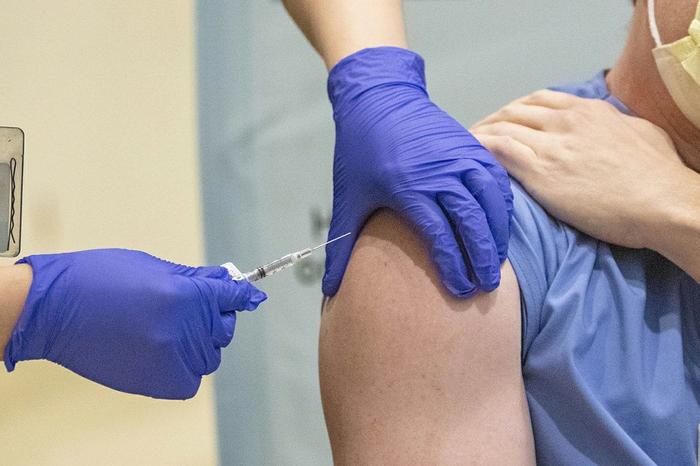Summary: Genetic screening enhances effectiveness of immunotherapy in treating prostate cancer, with disease progression slowed by up to 33 months in some patients.
Estimated reading time: 5 minutes
A groundbreaking study from Radboud university medical center has revealed that immunotherapy can be highly effective in treating prostate cancer when patients are selected based on specific genetic markers. The research, published in the Annals of Oncology, shows promise for a subset of men with prostate cancer who previously had limited treatment options.
Unlocking the Potential of Immunotherapy
While immunotherapy has shown mixed results in prostate cancer treatment, this new study demonstrates its potential when tailored to specific genetic profiles. Dr. Niven Mehra, an oncologist at Radboudumc and lead researcher, explains: “We discovered that men who responded well to immunotherapy had specific DNA errors in their tumors. These genetic abnormalities cause protein changes that activate the immune system, making immunotherapy more effective.”
The study focused on four genetic subtypes—MMRd, hTMB, BRCAm, and CDK12i—which are present in approximately 15% of all prostate cancer cases. A total of 69 men received a combination of two immunotherapy drugs, ipilimumab and nivolumab.
Remarkable Results for Some Patients
The results were particularly striking for patients with the MMRd mutation. In this group, the dual immunotherapy approach slowed cancer progression by an impressive 33 months. This is a significant improvement over single immunotherapy treatments, which typically keep the disease under control for about eight months in MMRd patients.
Dr. Sandra van Wilpe, a clinician-scientist involved in the study, emphasizes the importance of these findings: “It’s not a large group, but for these patients, immunotherapy can significantly slow the progression of prostate cancer. We see that with immunotherapy, the cancer remains controlled for 33 months, which is a remarkable result.”
The Path Forward: Early Screening and Targeted Treatment
The study’s findings highlight the potential for personalized medicine in prostate cancer treatment. Dr. Mehra advocates for genomic diagnostic screening early in the disease process, a practice already implemented at Radboudumc. This approach could lead to more targeted and effective treatments for patients with specific genetic mutations.
“Based on our results, for men with MMRd, it might be beneficial to consider starting immunotherapy even before hormone therapy or chemotherapy,” Dr. Mehra explains. “Then you need to examine the tumor’s DNA early in the disease process. Potentially, we could cure these men with MMRd metastatic prostate cancer, though further research is needed.”
While the results are promising, it’s important to note that immunotherapy can cause side effects. Nearly half of the men in the study experienced issues such as diarrhea, with about 20% discontinuing treatment due to these effects.
As research continues, this study marks a significant step forward in the fight against prostate cancer, offering hope for more personalized and effective treatments in the future.
Quiz:
- What genetic subtype showed the most promising response to dual immunotherapy?
- How long did the dual immunotherapy slow cancer progression in patients with the MMRd mutation?
- What percentage of prostate cancer cases have the genetic subtypes targeted in this study?
Answers:
- MMRd (mismatch repair deficiency)
- 33 months
- Approximately 15%
Further Reading:
- National Cancer Institute: Immunotherapy for Cancer
- American Cancer Society: Prostate Cancer
- Vaccines as treatments for prostate cancer
Glossary of Terms:
- Immunotherapy: A type of cancer treatment that helps the immune system fight cancer.
- MMRd (Mismatch Repair Deficiency): A genetic condition where cells have trouble repairing mistakes in DNA replication.
- Genomic diagnostic screening: Testing that examines a person’s genes to identify specific mutations or alterations.
- Ipilimumab and Nivolumab: Types of immunotherapy drugs known as checkpoint inhibitors.
- Metastatic: Cancer that has spread from its original site to other parts of the body.
- Castration-resistant prostate cancer: Prostate cancer that continues to grow even when the amount of testosterone in the body is reduced to very low levels.
Enjoy this story? Get our newsletter! https://scienceblog.substack.com/


